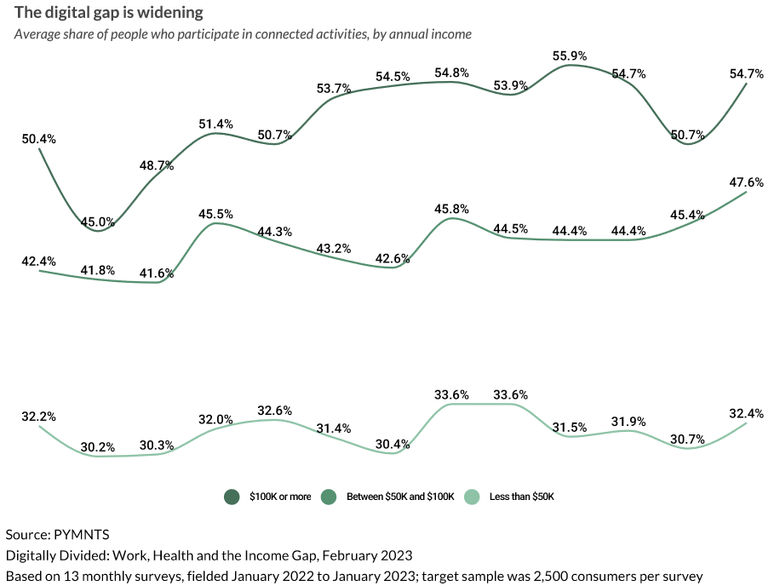A new report reveals that travel industry’s digital divide has widened over the past year.
High-income consumers are consistently more likely than low-income consumers to use digital tools for traveling, according to Pymnts’ Connected Economy Monthly Report: Digitally Divided – Work, Health and the Income Gap. The data company surveyed 2,710 U.S. consumers from different income brackets between January 6 and 10.

The study shows that high-income and mid-income consumers are 1.5 times as likely as low-income consumers to go online to plan vacations and book travel and accommodations.
Nearly half (46%) of high-income consumers used websites, apps, aggregators or other digital tools to plan or book travel tickets or accommodations – up 19% from last year. Meanwhile, low-income consumers’ use of digital for travel remains relatively unchanged.
High-income consumers, defined as those earning more than $100,000 annually, are the most likely of any income bracket to participate in the connected economy, in which “people and businesses connect with each other and do business via any device, and in any digital or physical location safely, securely and in real time,” according to Pymnts.
High-income consumers are also twice as likely to have paid for their most recent purchase via a digital wallet as they were in January 2022. Twenty-one percent of high-income consumers paid for their most recent purchase via a digital wallet, while just 12% of low-income consumers did the same.














